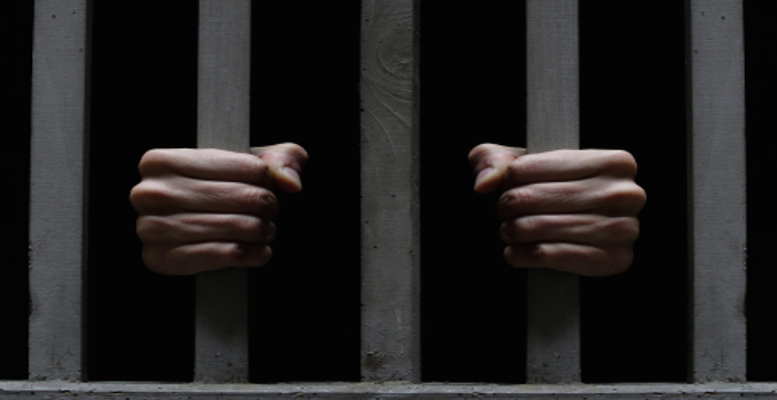European Views | Alexander Lukashenko’s latest gambit was too outrageous for European policymakers to ignore. The EU rushed to react after the Belarusian dictator scrambled fighter jets to intercept a Ryanair flight between Athens and Vilnius to arrest dissident journalist Roman Pratasevich, banning Belarus-flagged carriers from European airspace and plotting a fresh round of sanctions. Tensions were hardly calmed by Belarusian state TV’s decision to air a 90-minute “confession” by a visibly battered Pratasevich, believed to have been speaking under duress.
Indeed, the ugly incident has shone an international spotlight on the Lukashenko regime’s brutal handling of political prisoners, who are forced to wear yellow tags that single them out for special treatment including torture. European policymakers have roundly condemned the abuse which Minsk subjects its detained opposition figures to—but unfortunately, they have not been as swift to fight for the rights of political prisoners in other parts of the world.
Not strong enough on Guinea
In particular, the European Commission recently dropped the ball with its lacklustre response to the ongoing repression in Guinea. In April, a group of 32 MEPs from across the political spectrum signed a letter recommending that the EU use its newly-minted European Magnitsky Act to sanction 25 high-ranking members of Alpha Condé’s regime for human rights abuses, including the horrific September 28, 2009 massacre as well as the ongoing repression of opposition figures. The MEPs were reportedly displeased with top EU diplomat Josep Borrell’s wishy-washy response to their letter—instead of taking any concrete action, Borrell merely repeated the EU’s previous admonitions to Condé and advocated for a new round of political dialogue between the European bloc and Guinea.
The EU’s failure to act decisively on the Guinea case is particularly disappointing given that it’s clear that any change in the Alpha Condé regime would have to stem from outside pressure. Not only has Condé dragged his feet on rooting out many of the perpetrators of the September 2009 massacre from government and prosecuting them, the Guinean strongman and his allies are continually committing fresh abuses against members of the opposition and human rights activists.
Political prisoners paying the price for disputed election
Repression in Guinea spiked sharply after a disputed election in October 2020 yielded Alpha Condé a third term, something which would have been unconstitutional before a new constitution which Condé pushed through. In the wake of the election, the Guinean police launched a sweeping operation against opposition politicians and activists, many of whom still remain incarcerated six months later under horrific conditions. According to opposition leader Cellou Dalein Diallo—whose passport was confiscated and his home blockaded by security forces after he and Condé both claimed victory in the contested polls—more than 400 opposition figures, apparently including over 100 minors, languish in Conakry prison on allegedly spurious charges, with no idea when they may go before a judge. Independent bodies including the African Court on Human Rights have criticized Condé’s incarceration of his political opponents, but the Guinean government stubbornly insists that it does not keep any political prisoners.
As the situation drags on, Guineans at home and abroad are pleading for some semblance of justice. Popular Guinean author Tierno Monénembo, for example, drafted a petition which has already garnered more than 3000 signatures, calling for the immediate liberation of the political prisoners held by Alpha Condé’s government.
Pivotal role for the international community
Other groups, meanwhile, have realised that the only hope of putting pressure on Condé’s autocratic regime is to entice the international community to take a closer look at the ongoing repression in Guinea. The Collectif pour la Transition en Guinée (CTG), a political organisation created by members of the Guinean diaspora in France, has launched a concerted campaign fighting for the release of all the prisoners “who opposed Alpha Condé’s ambitions to secure a third term and the presidency for life”.
As part of their efforts to raise international awareness of the plight of Guinea’s political prisoners, the Collectif pour la Transition en Guinée has held conferences bringing together French politicians, human rights experts and family members of those detailed in Conakry. The CTG also planned to protest Alpha Condé’s arrival at Emmanuel Macron’s May 18 conference on African economic development, in order to convince French and European citizens of “the dangerous nature of his regime” and the fact that “for ten years, Alpha Condé has taken the people of Guinea as his hostages”
In the end, Condé was conspicuously not invited to the summit which saw twenty African heads of state join the French leader, but in order to free the dissidents suffering in Conakry prison, it will require more than tacitly sidelining the Guinean strongman. In arguing that the EU must react firmly and swiftly to Lukashenko’s abduction of Roman Pratasevich, European Parliament President David Sassoli underlined that European policymakers have “a great responsibility to show that the Union is not a paper tiger”. The European bloc will best demonstrate this if it takes a stand against human rights abuses such as the holding of political prisoners wherever they occur, not only on its doorstep.





